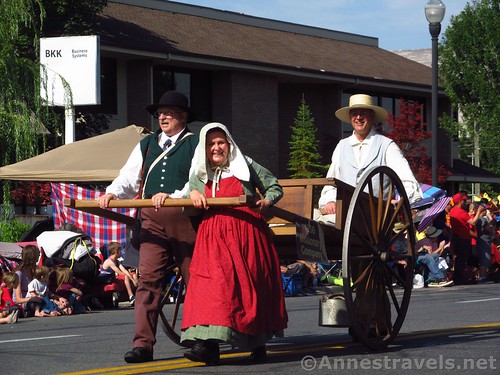
As I read through the gospels, I’m struck by Jesus’ compassion. He really didn’t get along at all with the people who thought they were great. In fact, in most situations, He sided with those who were oppressed. Even in the story of Peter and the tax, Jesus provided for him (for both Peter and Jesus, actually) when both men were too poor to pay their oppressively high taxes (Matthew 17:27).

Today, some parts of society have taken this idea to an extreme. The most oppressed person – or at least the person who is most convincingly oppressed – is the person who is right, and everyone else is wrong. This of course isn’t Biblical (Jesus didn’t side with or affirm the idol-worshipers of his day in Jerusalem, even though they would have been an “oppressed” class by far outnumbered by temple-attending Jews). Just because a person is oppressed, overlooked, or “different” doesn’t make them right, wrong, better, worse, or a lot of other things.

That all said, we still are called to not be the oppressor in any given situation. Isaiah said, “Learn to do good; seek justice, correct oppression; bring justice to the fatherless, plead the widow’s cause” (1:17).

In our churches and spheres of influence, do we oppress others? I’m sure all of our first response would be “no, of course not!” or “I certainly try not to!” But what happens when an obvious “sinner” walks into church? Do we leave 5 empty seats on either side of him (or her) and then ask the pastor to please speak to them about their evil beliefs? When we’re walking through the grocery store, do we scowl at two guys holding hands, make a point of ignoring them, or otherwise show how “wrong” they are? Do we choose our circle of coworkers based on whether we agree with their faith stance? Do we give more preference, compliments, and comradery to people like ourselves?

It’s true that many people of traditionally-oppressed groups have been conditioned to see rejection even where none is intended due to previous situations. So it’s altogether possible that you can be accused of oppression when 1) no oppression has been intended – it was a perceived oppression, and 2) no oppression actually existed. No accusations of oppression isn’t a very good way of gauging your non-oppressive status because it’s possible that no one is close enough to accuse and also because no matter how much you accept and affirm, there’s still someone (or someones) who feel left out.

Here’s my point: As far as it is possible with you, oppress no one – and that includes the people you don’t agree with. Are they wrong? Very possibly. Is turning a blind eye to sin a good idea? Not at all! (Proverbs 10:10) There is a way to know what sin is without oppressing the sinner – especially socially. Loving these “sinners” while not becoming caught in their sin (Galatians 6:1) is a much more likely way to fulfill God’s commands than by sticking by “truth” to the point that – like the Pharisees – you end up following the tiniest parts of the law but forget the more important things like “justice, mercy, and faithfulness” (Matthew 23:23). Remember, it’s the kindness of God – not the judgement passed by His people – that brings people to repent of their sin (Romans 2:4)





